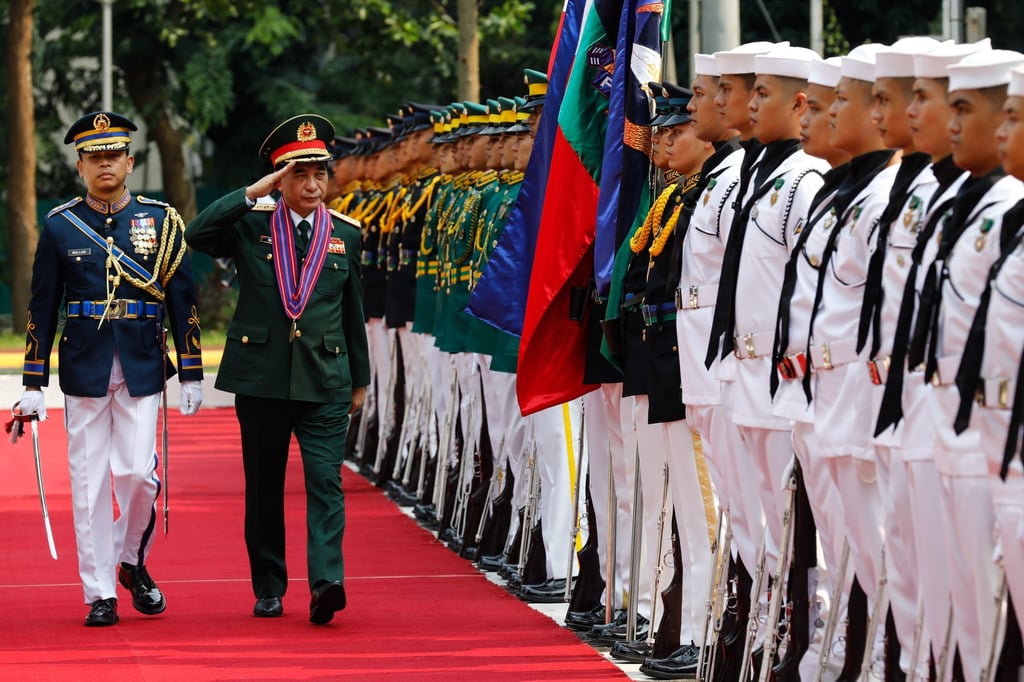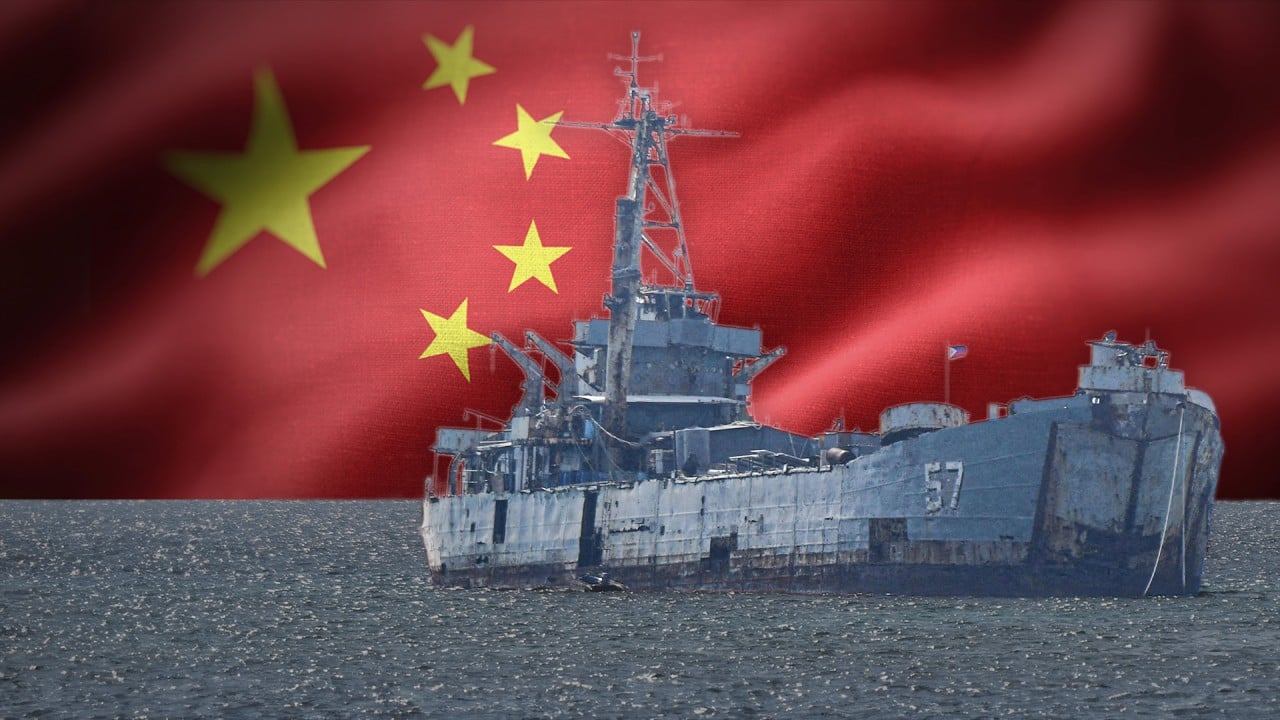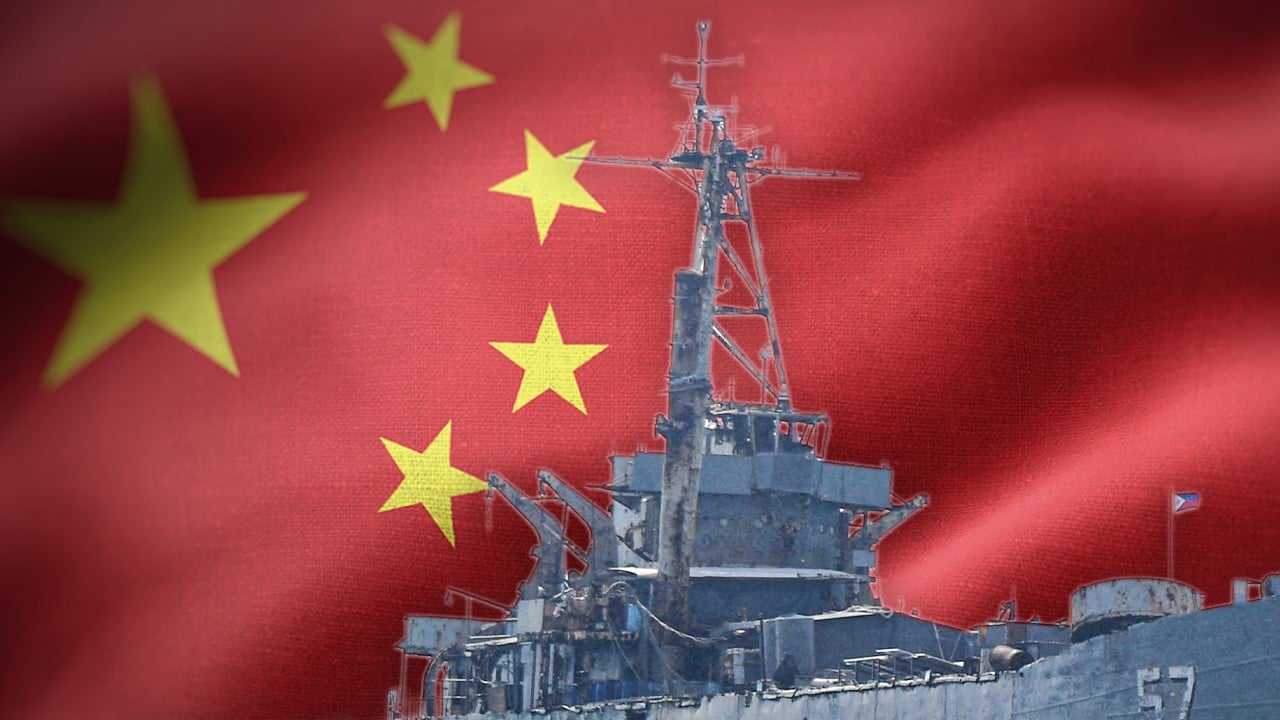The Philippines and Vietnam are set to enhance their defence ties with a landmark agreement expected by the end of the year, reflecting their growing bilateral cooperation amid shared concerns over maritime security.
The announcement came during Vietnamese Defence Minister General Phan Van Giang’s visit to Manila on Friday, during which he and his Philippine counterpart Gilberto Teodoro signed letters of intent (LOI) to strengthen engagements on disaster response and military medicine.
Giang said he hoped a memorandum on defence cooperation between the two countries could be signed on the 80th anniversary of the Vietnam People’s Army this December.
After the signing of the LOIs, the Philippine Department of National Defence released a statement saying both countries had also agreed to “explore more in-depth collaboration on maritime security, cyber security, humanitarian assistance and disaster relief (HADR), military medicine, peacekeeping operations, and defence industry”.
“Both ministers affirmed their commitment to a rules-based international order firmly anchored on international law and the promotion of sustainable peace, principled security, and regional stability,” the statement read.
It also noted that both parties agreed to “resolve all disputes by peaceful means, in accordance with international law”.

Before signing the LOIs, Giang paid a courtesy call to Philippine President Ferdinand Marcos Jnr at Malacanang Palace.
Marcos Jnr told Giang that his visit would serve to strengthen “the depth and the range of our relationship” and called it “a very significant point” in the two states’ bilateral relations.
Giang thanked the president for the “very good interactions and exchanges” between their coastguards and navies, adding that Vietnam believed “the Philippines will further play a very active and dynamic role to contribute more to the Asean community”.
Marcos Jnr wrote on Facebook that Giang’s visit had “elevated Philippines-Vietnam relations to greater heights” and thanked Vietnam for “supporting the Arbitral Award”, referring to the 2016 decision by an arbitration court at The Hague that dismissed most of China’s claims over the South China Sea.
Based on the records of the Permanent Court of Arbitration, Vietnam was the only Asean state that told the court in writing that it recognised its competence to make a ruling, which it did by invalidating China’s nine-dash line through which it claimed much of the South China Sea.
Retired Supreme Court associate justice Antonio Carpio told This Week in Asia that further defence cooperation between the two countries would benefit both sides.
“We have a common enemy grabbing our territories and maritime zones. A joint patrol in Vietnam’s EEZ and the Philippines’ EEZ will send a strong assertion of each country’s sovereign rights.”
Vietnam and the Philippines have the most overlapping claims with China regarding territory in the South China Sea.
Carpio noted that Manila and Hanoi do not have any overlapping claims regarding specific maritime features in the disputed waterway, but only “in the extended continental shelf [beneath the South China Sea] we have overlaps with Vietnam and Malaysia”.
The “extended continental shelf” refers to a portion of a coastal state’s continental shelf that extends beyond the standard 200 nautical miles (370.4km) from its baseline and grants the state sovereign rights over the natural resources on and below the seabed, including marine life, minerals and oil.

In June, Vietnam offered to negotiate with the Philippines on a peaceful settlement to their overlapping continental shelf claims, the first country to offer to do so.
The following month, soldiers from both sides had a “friendship exchange” of activities that included football, karaoke and discussion of challenges both faced in defending their maritime territories.
Earlier this month, Vietnam sent a coastguard ship to the Philippines to do a joint drill and sail, as well as search and rescue exercises with its counterpart.
The two countries initially signed a deal on maritime security involving their coastguards on January 30, when Marcos Jnr was in Hanoi for a state visit. At that time, he hailed Vietnam as “the sole strategic partner of the Philippines” in Asean.
“The world and regional situation is evolving in a rapid and complicated manner and therefore we need to unite and cooperate more closely,” Vietnamese Prime Minister Pham Minh Chinh told Marcos Jnr at the time.



